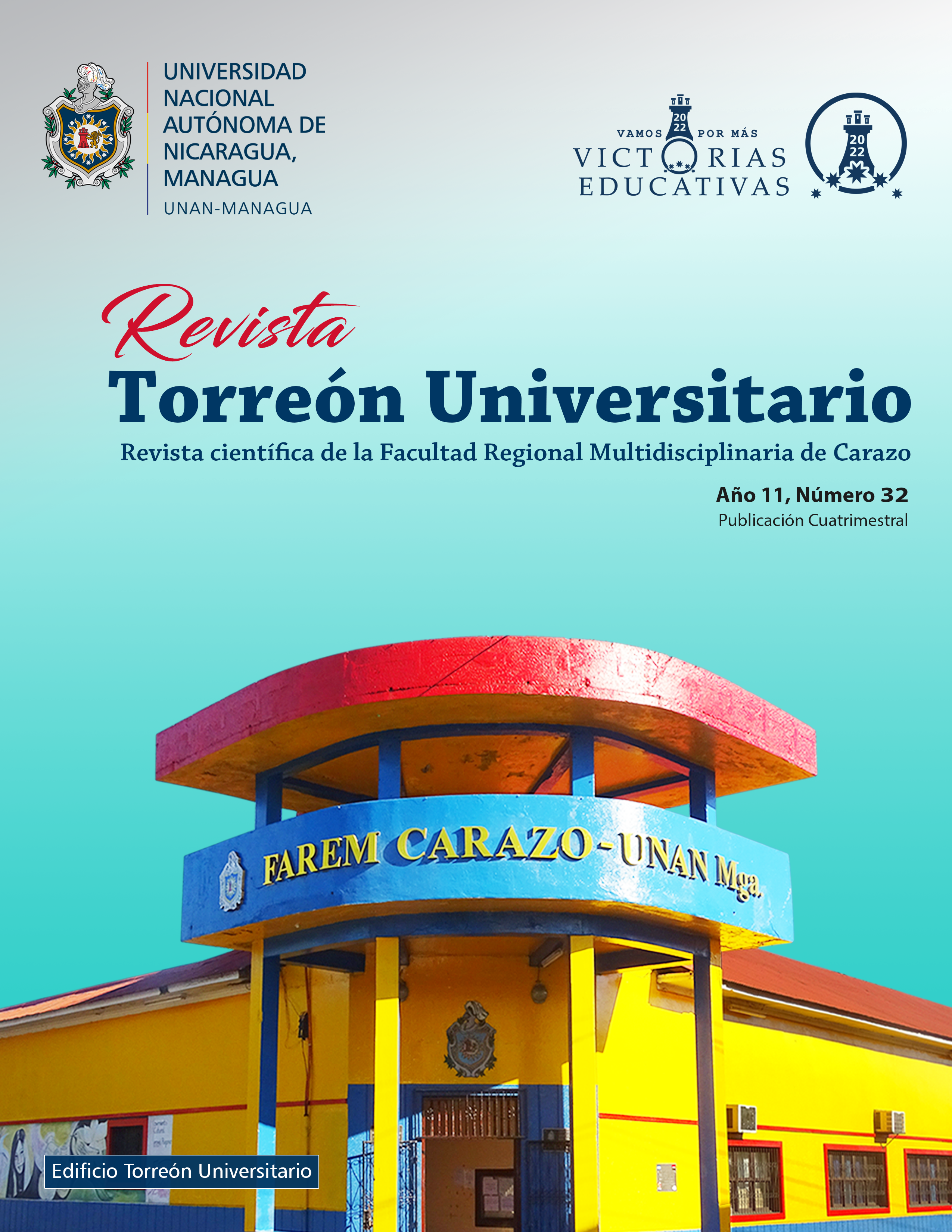Quality management in the Continuing and Postgraduate Education Unit (QMCPEU) of the Regional Multidisciplinary Faculty of Carazo, National Autonomous University of Nicaragua, Managua.
DOI:
https://doi.org/10.5377/rtu.v11i32.14974Keywords:
Quality management, educational quality models, quality deployment function, service cultureAbstract
The purpose of the research is the analysis of the factors that determine quality management at the Continuous and Postgraduate Education Unit (QMCPEU) of the Regional Multidisciplinary Faculty of Carazo, of the National Autonomous University of Nicaragua, Managua, from the perspective of the actors involved; and students, teaching staff and management teams, considering that institutions of higher education at the graduate level should establish a program of continuous improvement.
The study involves the description of the context of quality management in higher education, the approach of the factors for
quality management, the knowledge of the perception of quality management, through the triangulation of information between
governing bodies, users, and teachers, in addition to the opinion of experts in the area of study.
As for the methodology, this research is developed under a positivist paradigm with a quantitative approach, so the data provided by the key actors are described and analyzed.
As a result, it was found that the QMCPEU faces limitations related to curricular improvement, human talent management, administrative and financial efficiency, the effectiveness of the teaching-learning process, provision of infrastructures, technological equipment, graduate monitoring processes, and especially the lack of a culture of service. Finally, the proposal of the management model for quality service culture "CLOSER" is presented, which has a humanistic approach to the organization oriented towards the user.
Downloads
References
Arenas, L. y Luna, M. (2008). Calidad y competencias; Propuesta de un modelo educativo en la educación superior. Obtenido de https://www.redalyc.org/articulo.oa?id=553756884007
Cronbach, L. J. (1951). Coefficient alpha and the internal structure of tests. California: Psychometrika
Domínguez, G. (2003). El modelo de verificación de escenarios organizacionales (VERO) y su aplicación a programas de formación multimedial. Revista Complutense De Educación, 75 - 138.
Escobar, J., & Cuervo, A. (2008). Validez de contenido y juicio de expertos: una aproximación a su utilización.
Gento, S. (2002). Instituciones educativas para la calidad total. Madrid: La Muralla.
Hernández, R., Fernández, C., & Baptista, P. (2014). Metodología de la investigación. México D.F: McGraw-Hill.
Pichardo, J. (2007). El estudio de las expectativas en la universidad: análisis de trabajos empíricos y futuras líneas de investigación. Revista electrónica de investigación educativa, 27.
UNAN, Managua. (2004). Reglamento del Sistema de estudios de Posgrado y educación continua. Managua: UNAN, Managua.
UNAN, Managua. (2015). Plan Estratégico Institucional 2015-2019. Managua: Tutecotzimí
Downloads
Published
Issue
Section
License
Copyright (c) 2022 National Autonomous University of Nicaragua, Managua.

This work is licensed under a Creative Commons Attribution-NonCommercial-NoDerivatives 4.0 International License.
The authors who publish in this journal agree to the following terms.
- The author or authors of the articles, essays or research grant the National Autonomous University of Nicaragua, Managua (UNAN-Managua) the editing rights (copyright) of the submitted work, therefore the University has the exclusive right to publish the article for the entire copyright period.
- These copyrights/authors authorize Torreón Universitario Magazine and the University to edit and disseminate/publish the article in said Magazine, including printed and electronic reproduction, storage, retrieval and any other type of publication, and sources of secondary information as services. of summaries and databases, they also empower it to protect the article against unauthorized use for dissemination by printed or electronic media (PDF, HTML, EPUB, XML or others).
License for use of content
The magazine uses the Creative Commons Attribution-NonCommercial-NoDerivs 4.0 International License.
Under this statement:

This journal is licensed under a Creative Commons Attribution-NonCommercial-NoDerivatives 4.0 International License. It can be copied, distributed and transmitted publicly as long as the author and source are cited (Revista Torreón Universitario), it should not be modified or used for any commercial purpose. The full license can be found at http://creativecommons.org/licenses/by-nc-nd/4.0/.



